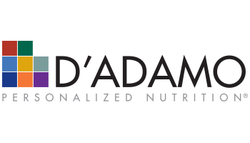
When you think of vitamin D, you probably think about sunny days. It makes sense since our bodies create vitamin D when our skin is exposed to sunlight. The “sunshine vitamin” is well known for helping the body absorb calcium and build strong, healthy bones. But did you know that it has another important function? Vitamin D also plays a key role in fighting disease. It’s one of the building blocks of a healthy, strong immune system.
Studies* show that vitamin D is particularly adept at helping our bodies fight off respiratory viruses, such as seasonal flu and even COVID-19. As many of us are beginning to transition back into classrooms and offices, enclosed areas ripe for the spread of germs, there’s never been a better time to learn more about this powerhouse vitamin and its potential for enhancing overall health.
Where exactly do humans get vitamin D?
The best (and most well-known) source of vitamin D is the sun. When our skin is exposed to the sun’s ultraviolet B (UVB) rays, a chain of reactions occurs within the skin’s cells that causes the body to manufacture vitamin D. It’s one of only two vitamins that our bodies actually create (the other is vitamin K.)
While the sun is not the only way to get vitamin D, it is certainly the most convenient. Vitamin D can also be found in foods, but relatively few foods contain vitamin D naturally. Fatty fish like tuna, salmon and mackerel are good sources of vitamin D, and some foods like cheese, egg yolks and beef liver contain smaller amounts. But natural food sources of vitamin D are limited. That’s one reason many food manufacturers fortify their products with this essential vitamin. Milk, orange juice and certain cereals often contain added vitamin D.
Supplements are another source of vitamin D and they may be particularly important for those who are unable to get enough sunlight to produce adequate amounts for optimal immune function.
What are the different types of vitamin D?
Not all supplements are the same, and that is especially true when it comes to vitamin D. There are two commonly available forms of vitamin D supplements – vitamin D2 and vitamin D3.
The main difference is that D2 comes mainly from plants and fortified foods, while D3 is found in animal-sourced foods. D2 is produced when plants are exposed to sunlight whereas D3 is the natural form our bodies create from sunlight.
When it comes to supplements, it is typically cheaper to produce the D2 form and this is commonly found in multi-vitamin supplements, however D3 is thought to be more effective at raising vitamin D levels in your blood.
Why are so many of us vitamin D deficient?
It is estimated that a significant portion of the world’s population is vitamin D deficient. Sunscreen is thought to be a contributing factor. While sunscreen helps protect our skin from sun damage and ultraviolet B (UVB) rays, it also blocks our ability to create vitamin D, which requires some UVB exposure.
Of course, there are other reasons that humans don’t get enough sunlight exposure. Winter is an obvious one, but air pollution and high altitudes can also keep us from getting the sunshine our bodies need. Additionally, people with darker skin typically require longer sun exposure than people with lighter skin to create vitamin D.
How does vitamin D affect the immune system?
Several studies* have concluded that vitamin D plays a vital role in maintaining a healthy immune system (see references section below for more details). In fact, low levels of vitamin D have been linked to increased risk for several immune-related diseases including psoriasis, type 1 diabetes, multiple sclerosis, rheumatoid arthritis, tuberculosis, sepsis, respiratory infection and COVID-19.
What role does vitamin D play exactly? More than one, actually. Vitamin D reduces concentrations of cell secretions that produce inflammation and injure the lining of the lungs, which can lead to pneumonia. At the same time, vitamin D increases concentrations of anti-inflammatory secretions. It also lowers a virus’ ability to replicate and even helps to form certain proteins that protect the lungs and heart.
Some preliminary studies* show possible improvement in COVID-19 patients when given high doses of vitamin D. But what is known for sure, though, is that getting adequate amounts of vitamin D is important to many of the body’s functions and a healthy immune system is one of them.
How much vitamin D do you need?
For most people, 10-30 minutes of midday sun a few times a week (without sunscreen) is probably sufficient. People with darker skin may need more exposure. But depending on your lifestyle and where you live, it may be difficult to get enough sunlight, especially in the winter months. That’s when supplementation may be beneficial.
While experts disagree on the exact daily vitamin D requirement, most recommend between 1,500 – 5,000 IUs when only minimal sunlight exposure is possible. If deficient, higher levels may be required for a short period of time (up to 8 weeks) before switching to a maintenance dose. It’s important to consult with your doctor before taking supplements, including vitamin D.
What is Phyto D 2000?
Dr. Peter D’Adamo, author of Eat Right 4 Your Type, created Phyto D 2000 to help support healthy bones, connective tissues, and immune system function. His proprietary blend of vitamins D3 (the natural form that your body makes from sunlight) and Vitamin K, along with Chinese herbs Epimedium and Drynaria, help provide essential, wide-ranging effects throughout the body, including aiding in the absorption of calcium, iron, magnesium, phosphate and zinc.
If you are interested in learning more about how your blood type can help you understand why certain foods are Right 4 Your Type and others aren’t, we invite you to visit our Blood Type Diet Getting Started page. Your individual blood type can provide insight into how you can best handle stress, manage weight and plan strategies for overall health and wellbeing.
Additional References:
*Immunologic Effects of Vitamin D on Human Health and Disease
*Vitamin D levels appear to play role in COVID-19 mortality rates

